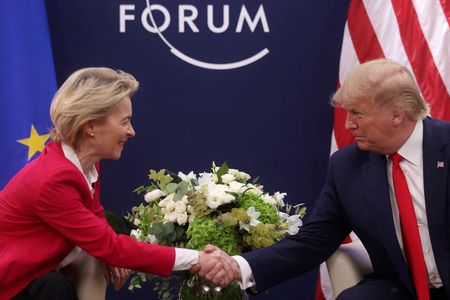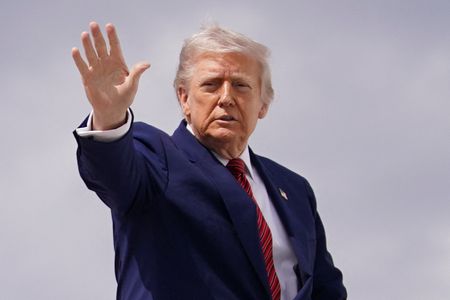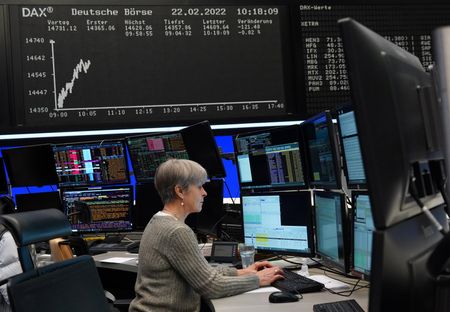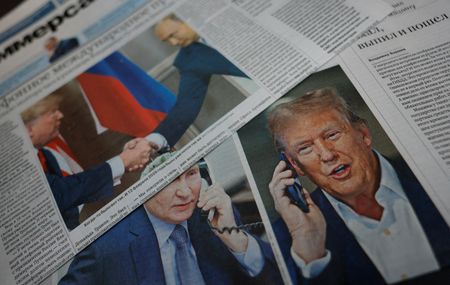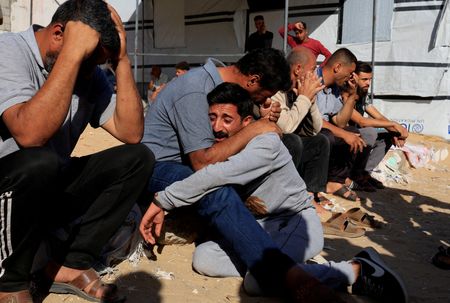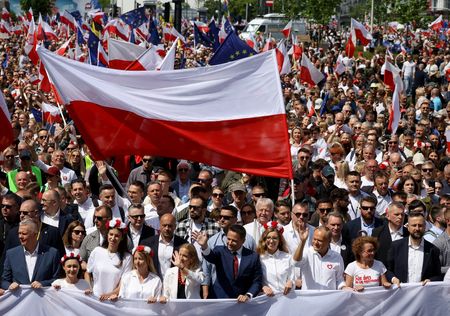By Jeff Mason
MORRISTOWN, New Jersey (Reuters) -U.S. President Donald Trump backed away on Sunday from his threat to slap 50% tariffs on imports from the European Union next month, agreeing to extend the deadline until July 9 for talks between Washington and the 27-nation bloc to produce a deal.
Trump on Friday said he was recommending a 50% tariff go into place on June 1 because of frustration that talks with the EU were not moving quickly enough. The threat roiled global financial markets and intensified a trade war that has been punctuated by frequent changes in tariff policies toward U.S. trading partners and allies.
Trump, who has repeatedly expressed disdain for the EU and its treatment of the United States on trade, relented after European Commission President Ursula von der Leyen told him on Sunday that the EU needed more time to come to an agreement.
She asked him during a call to delay the tariffs until July, the deadline he had originally set when he announced new tariffs in April. Trump told reporters he had granted the request.
“We had a very nice call, and I agreed to move it,” Trump said before returning to Washington after a weekend in New Jersey. “She said we will rapidly get together and see if we can work something out.”
Von der Leyen said in a post on X that she had a “good call” with Trump and that the EU was ready to move quickly.
“Europe is ready to advance talks swiftly and decisively,” she said. “To reach a good deal, we would need the time until July 9.”
The euro and U.S. dollar rose against the safe-haven yen and Swiss franc after the deadline extension.
In early April, Trump set a 90-day window for trade talks between the EU and the United States, which was to end on July 9. But on Friday he upended that timeframe and said he wasn’t interested in a deal at all.
“I’m not looking for a deal,” Trump said then. “We’ve set the deal – it’s at 50%.” Major U.S. stock indexes and European shares dropped and the dollar weakened as a result.
Trump has sought to upend the world economy with his trade policies, but after his announcement in April of tariffs on multiple countries sparked financial market upheaval, he dialed down his threats in favor of talks. Since then Washington has inked a pact with Britain and has held discussions with China.
But progress with the European Union has been more limited, sparking Trump’s ire and adding to broader tensions between the two allies over Trump’s “America first” agenda and Europe’s longtime reliance on Washington for security and defense needs.
(Reporting by Jeff Mason; additional reporting by Jan Strupczewski; Editing by Leslie Adler, Diane Craft and Lincoln Feast.)

